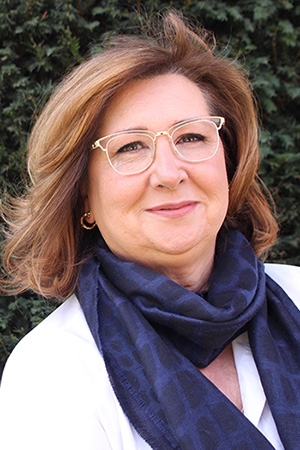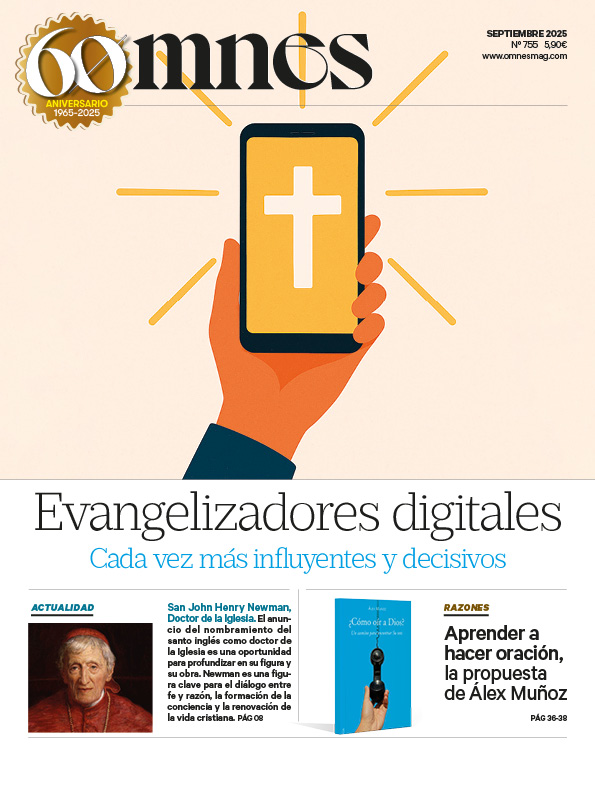In a few days, the Institute of Higher Studies of the Family of the International University of Catalonia will inaugurate the I International Workshop on Family Accompanimentr. Three days in which psychiatrists, families, counselors and teachers will share reflections and, above all, experiences and training on family accompaniment, which goes beyond offering theoretical content on the family.
As highlighted in this interview Mª Pilar LacorteAccording to the assistant director of Teaching Programs at the University's Institute of Higher Family Studies, "training is still necessary, but it is not enough, and above all we must learn to train in a different way, with a different methodology and a different style, in keeping with the culture in which we live.
How was the idea for this workshop born?
-In the IESF We have been working for years on the need and the way of accompanying families. From our teaching and research experience, we have found that the cultural changes of the last decades have not gone hand in hand with a change in the way of helping families according to their new mentality and their new circumstances.
After these years of work, we thought it would be a good time to share this experience with those who are on the front line with families. It seemed to us that a good way to do this is to convene a Workshop, that is, a meeting with a practical approach, on Family Accompaniment. We see this workshop as an opportunity to promote a change of cycle, giving a more real and concrete response to the needs that families have today.
The fact of celebrating it this year has been motivated by the celebration of the Year of the Family Amoris laetitia, promoted by the Holy Father. We must remember that Pope Francis has especially stressed the need to be close to families, in a practical and realistic way. And this is precisely what family accompaniment is.
We see this workshop as an opportunity to promote a change of cycle, giving a more real and concrete response to the needs of today's families.
Mª Pilar Lacorte. Assistant Director of Teaching Programs of the Institute for Advanced Family Studies. UIC
Who is the target audience and what are the objectives of this I International Workshop on Family Accompaniment?
-As a general objective, the workshop wants to help to understand family accompaniment as a change of approach in the way we have been supporting families up to now, as I have already indicated before. It is not about initiating new structures, or making drastic changes, but about understanding the real difficulties that families face and learning how to help them from a new perspective and with a fresh look.
The specific objectives of the workshop are, on the one hand, to offer training on what it is and how to carry out this accompaniment to families from different areas (educational, pastoral, from professional offices, social networks, etc.), in a practical and realistic way.
At the same time, we would like the workshop to serve as a meeting point to make known the accompaniment initiatives that are already being carried out and to make it possible to meet with those who wish to carry out this task, enabling synergies among the participants, and fostering the creation of new initiatives in the different countries.
We are happy to see that so far we have more than 400 attendees from about 50 countries from five continents. We believe that this is going to be a very relevant enrichment for all those who participate in the program.
For a long time, fathers, mothers and counselors have been "instructed" or trained, but is it the same as accompaniment? What makes it different, for example, from a family orientation course?

-Until a few years ago we believed that it was enough to offer families a "formation" to help them: that is, to give them ideas about how the family should be and how they should do things, with a style that we could call "directive", forgetting that formation is not only giving or receiving information, formation requires the freedom that makes it possible for each person, each family to discover its unique protagonism. Perhaps we have had too much of a moralistic or intellectual idea about the family.
Evidently training is still necessary, but it is not enough, and above all we must learn to train in another way, with another methodology and another style, in accordance with the culture in which we live, which, as I said at the beginning, has changed radically in the last two decades.
It seems that we train a lot in our professional or even social life, but we spend less time training for what will occupy us all our lives, which is the development of our family life. Are we aware of this shortcoming?
-Individuals and families, through our daily actions, are the ones who create the culture that surrounds us, and at the same time, we are influenced by that same culture.
From the Institute of Higher Studies of the Family, we have analyzed how today's families are: the West shows a clear tendency towards the creation of very individualistic societies. It is difficult for us to be with each other, we need immediate answers and actions and when conflict arises, we understand it as a sign of irreparable failure. And obviously, we find it difficult to ask for help.
With these budgets, family life can become very complicated; we find it difficult to understand the importance of family ties and strengthening those ties becomes difficult. Perhaps that is why we are not aware of what is really important in the lives of our families.
Is there a certain idea that one only goes to training or counseling to solve a family problem or to prevent it?
-Our proposal is to accompany families. To accompany means "to be with someone", to walk by their side, not only when there are difficulties, we must be present so that there is the necessary trust that allows us to accompany.
We accompany so that families are able to discover their own protagonism and learn the best way to resolve the difficulties and conflicts that all personal relationships entail. To accompany is above all to establish a personal relationship and, as such, it is based on trust: we cannot impose it, but we can offer the conditions to make it possible.
Family accompaniment is not a single action, but rather a "broad-spectrum" change of perspective that can be applied in different ways and in very diverse settings.
Mª Pilar Lacorte. Assistant Director of Teaching Programs of the Institute for Advanced Family Studies. UIC
In our society, the concept of "family" is being lost in many environments, as a unit of mother-father-children, and even of the extended family. How can we face this accompaniment in diverse situations such as those we are currently encountering?
Family accompaniment is not a single action, but rather a "broad-spectrum" change of perspective that can be applied in different ways and in very diverse environments. I do not believe that the concept of family is being lost, we are family beings, because we are human persons.
There is a fundamental, one could say universal core of what it means to "be a family", but then there are many different ways of unfolding it, as I have pointed out before. As there are no "ideal families" or "perfect families", in reality we all need to be accompanied. And we can all in some way be families that accompany other families.
For this it is important to learn to look at the family reality in a different way, to train ourselves and to share with others, so, in a way, all the people concerned about helping families have a place in this workshop.







